After 200 hours of negotiations, 300 meetings, and 15 draft documents, G20 members finally reached a consensus statement on the Ukraine conflict.
On the night of September 8th, just before the G20 summit opened in New Delhi, India, delegations from the group of the world's richest economies were still unable to reach a consensus on how to address the Ukraine issue in their joint statement.
In the draft joint statement, the section on " geopolitical situation" remains blank. European countries wanted to use strong language to condemn Russia's campaign in Ukraine, but Russia and China opposed any provision mentioning hostilities. The Chinese delegation also objected to mentioning the US holding the G20 presidency in 2026, but without success.
The G20 now faces a difficult choice: accept a joint statement with milder language on the Ukraine conflict, or no joint statement at all. Foreign Minister Sergei Lavrov had previously stated that Moscow would block the G20 summit's joint statement if it did not include Russia's position on the Ukraine conflict.
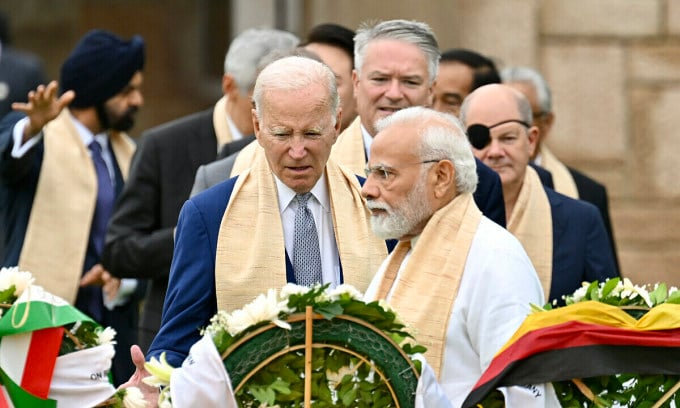
Indian Prime Minister Narendra Modi (right) with G20 leaders in New Delhi on September 10. Photo: AFP
Four diplomats involved in the discussions described the process of reaching the joint statement as quite difficult. Negotiations between the delegations of the countries took place for more than 200 hours, with 15 draft joint statements being produced.
The debate over Ukraine was considered the most complex part of the discussions. Russian and Chinese officials repeatedly sought to remove harsh language related to the campaign in Ukraine from the document. Some draft joint statements even contained no mention of the conflict at all.
Representatives from several developing countries in the G20, who support maintaining relations with Moscow, also expressed disagreement about using strong language to criticize Russia, prolonging the negotiations.
In the days leading up to the G20 summit, the draft joint statements proposed did not contain any language similar to that in last year's statement in Bali, Indonesia.
At the Bali summit, the G20 reached a last-minute joint statement after much debate, in which most member countries condemned Russia's war in Ukraine and demanded Moscow's unconditional withdrawal of troops.
Just before midnight on September 8th, diplomats argued that compromise was the only option, otherwise the G20 summit would end for the first time in history without a joint statement.
"This is not a statement drafted by the G7 or NATO. This is a completely different story, and the expectations are different," said a European official involved in the discussions.
Even French President Emmanuel Macron seems to acknowledge this. "Let's face the reality that the G20 is not a forum for political discussions," he said in New Delhi, suggesting the group's summit is more suited to negotiations on economics and climate change.
By the morning of September 9th, as time was running out, Indian officials presented a draft joint statement that included a section on the conflict in Ukraine, using more moderate language. Leaders approved the document, hoping to avoid public rifts within the G20, which could undermine the group's credibility and embarrass Prime Minister Narendra Modi, this year's G20 host.
The G20 leaders' joint statement reaffirmed concerns about the conflict in Ukraine, but did not directly criticize Russia. Instead, the document called on "all countries to act in accordance with the goals and principles enshrined in the full text of the UN Charter," and condemned "the threat or use of force to acquire territory, violate the territorial integrity and sovereignty, and political independence of other countries."
The joint statement acknowledged that the Ukraine issue still presents "differing views and assessments" among G20 members, but agreed that war is unacceptable in the modern era.
The White House hailed the joint statement as "important" and "unprecedented." They pointed out that even without explicitly mentioning the Russian campaign, the statement had persuaded neutral countries like Brazil and South Africa to agree to maintain territorial integrity and prevent attacks on infrastructure.
Host country India hailed the agreement as a diplomatic victory achieved just 24 hours before the summit concluded. "Bali is Bali. New Delhi is New Delhi. Bali was a year ago. The situation is different now. A lot has happened since then," said Indian Foreign Minister S Jaishankar.
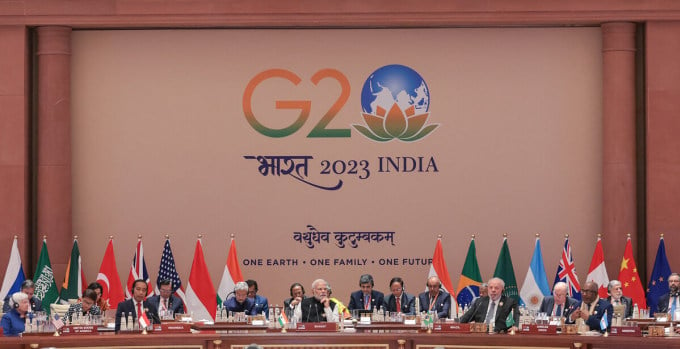
G20 leaders at their meeting on September 10 in New Delhi. Photo: AFP
Behind the scenes, officials also noted the importance of this year's G20 in elevating Modi to the status of a global statesman. If the summit concludes without a joint statement, it would be a major disappointment, as this is unprecedented in the past 15 years.
The US and Europe have sought to bolster Modi's international standing in an effort to strengthen relations with India. This is seen as the impetus for their decision to "soften" the language in the joint statement, moving away from criticizing Russia.
"We were able to prevent Western attempts to Ukrainianize the summit agenda. The joint statement made absolutely no mention of Russia," Foreign Minister Lavrov said, declaring the G20 summit a success.
Thanh Tam (Based on CNN, Guardian, WSJ )
Source link








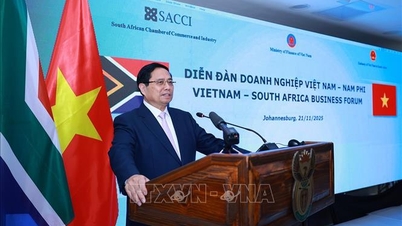

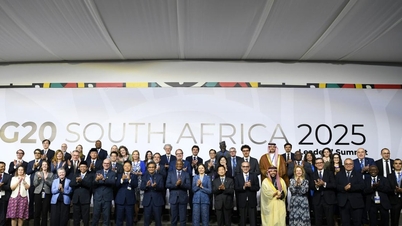

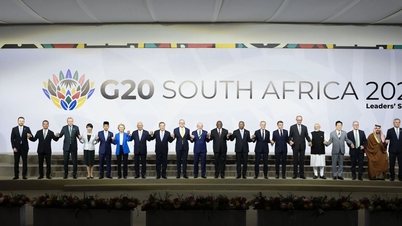
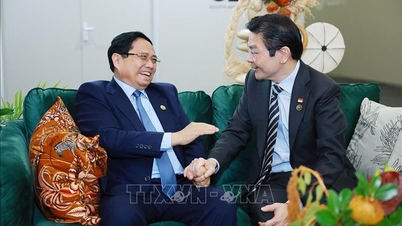
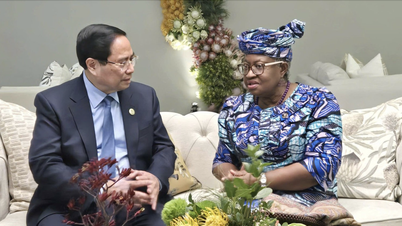

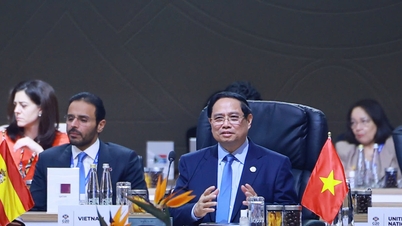


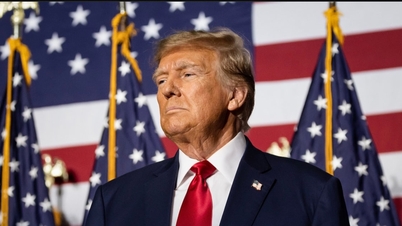
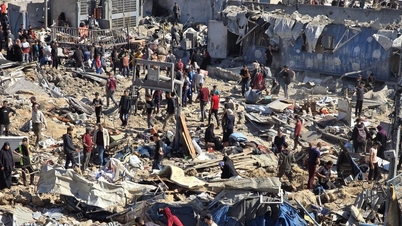
























































































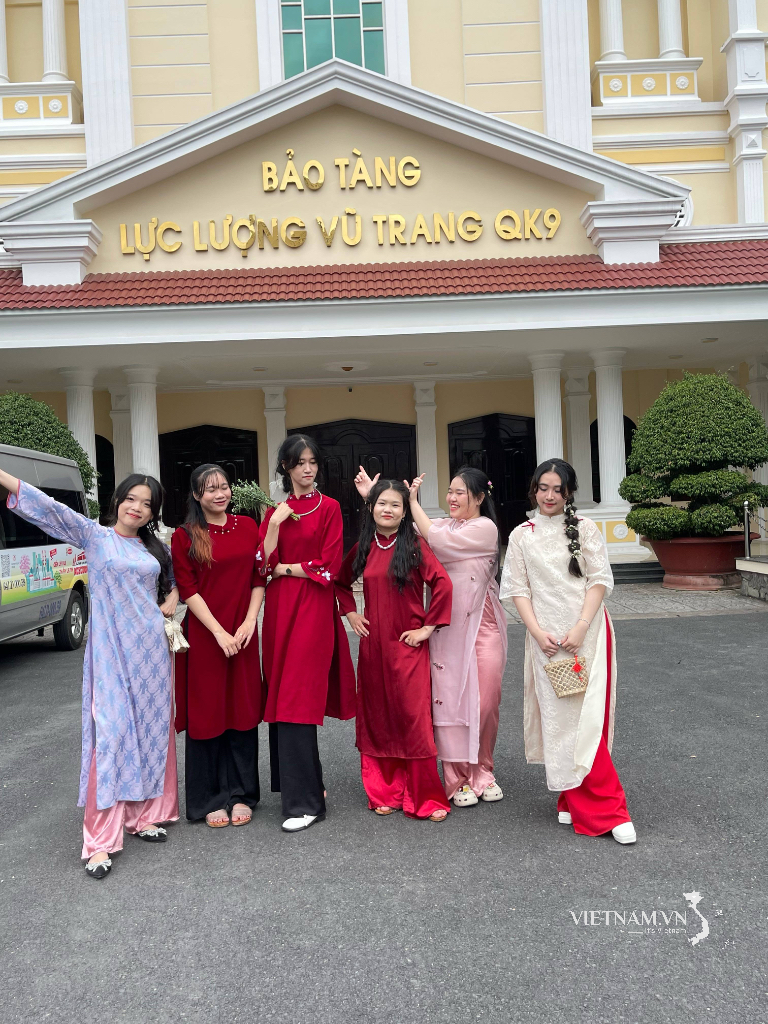
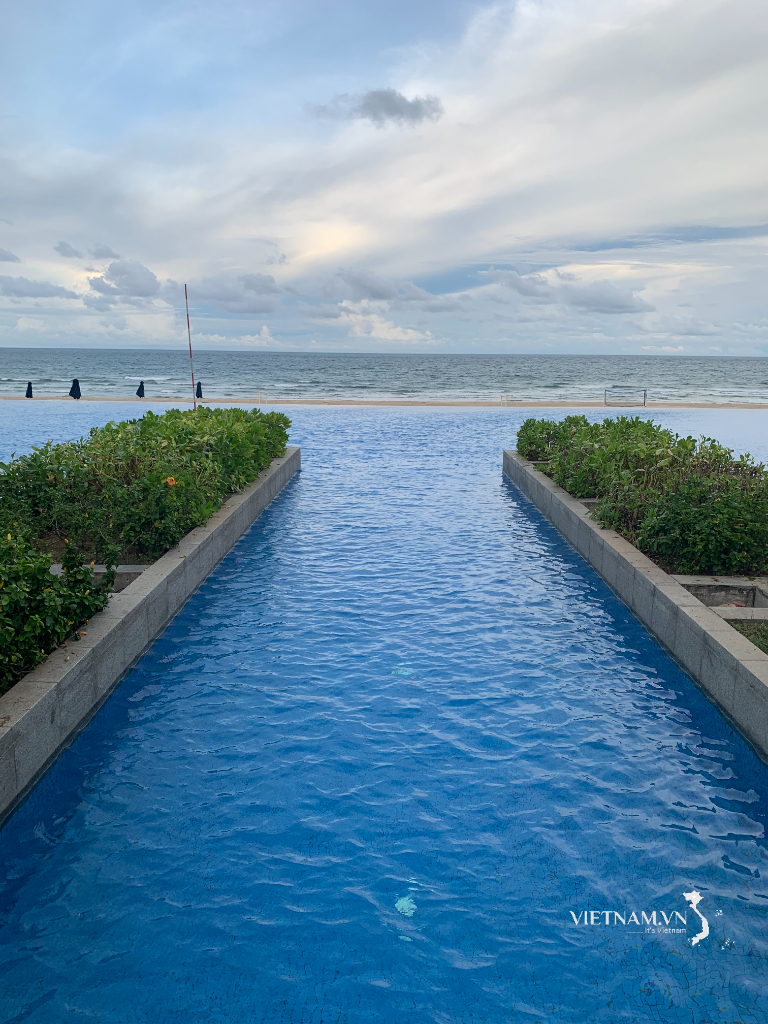
Comment (0)